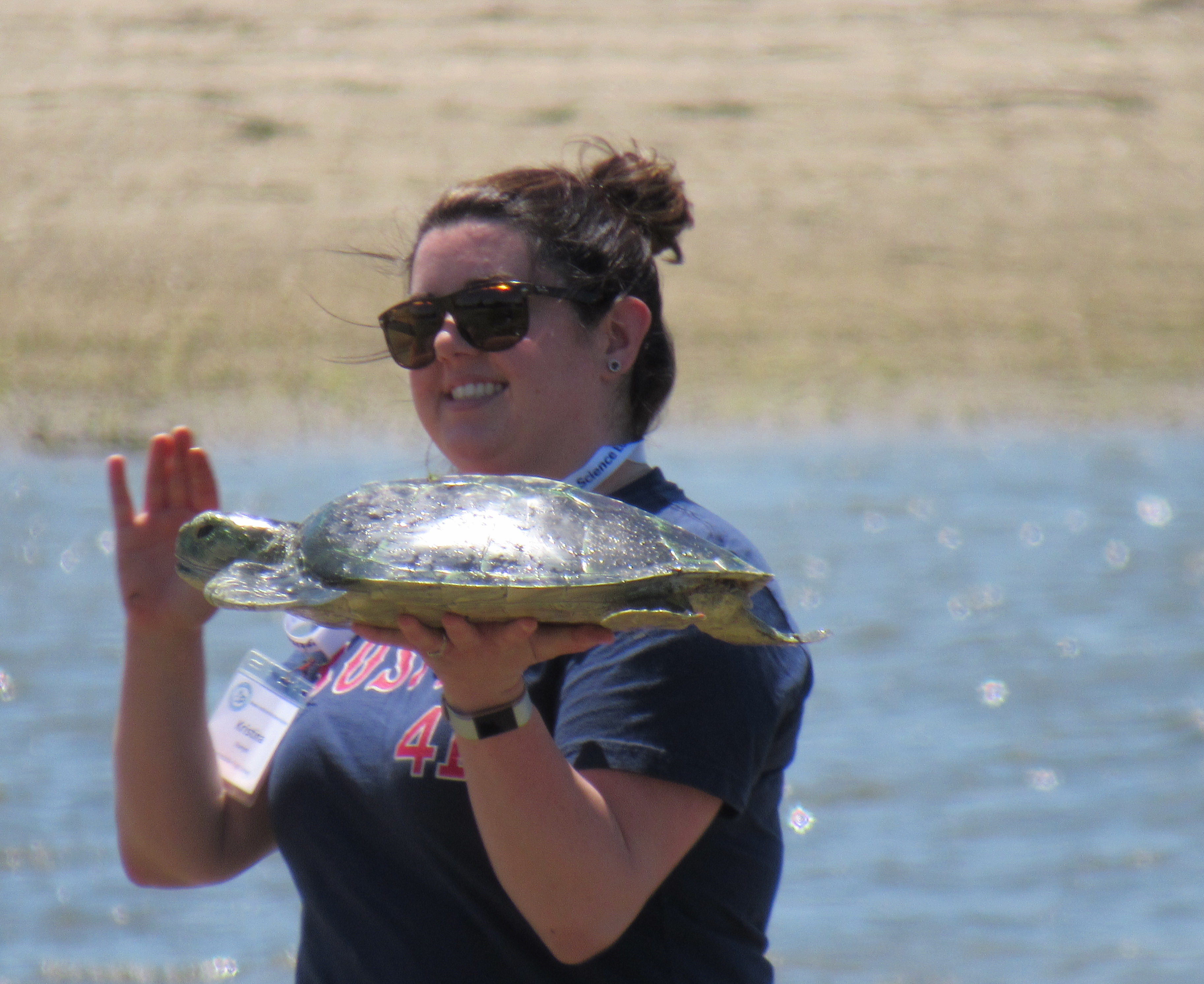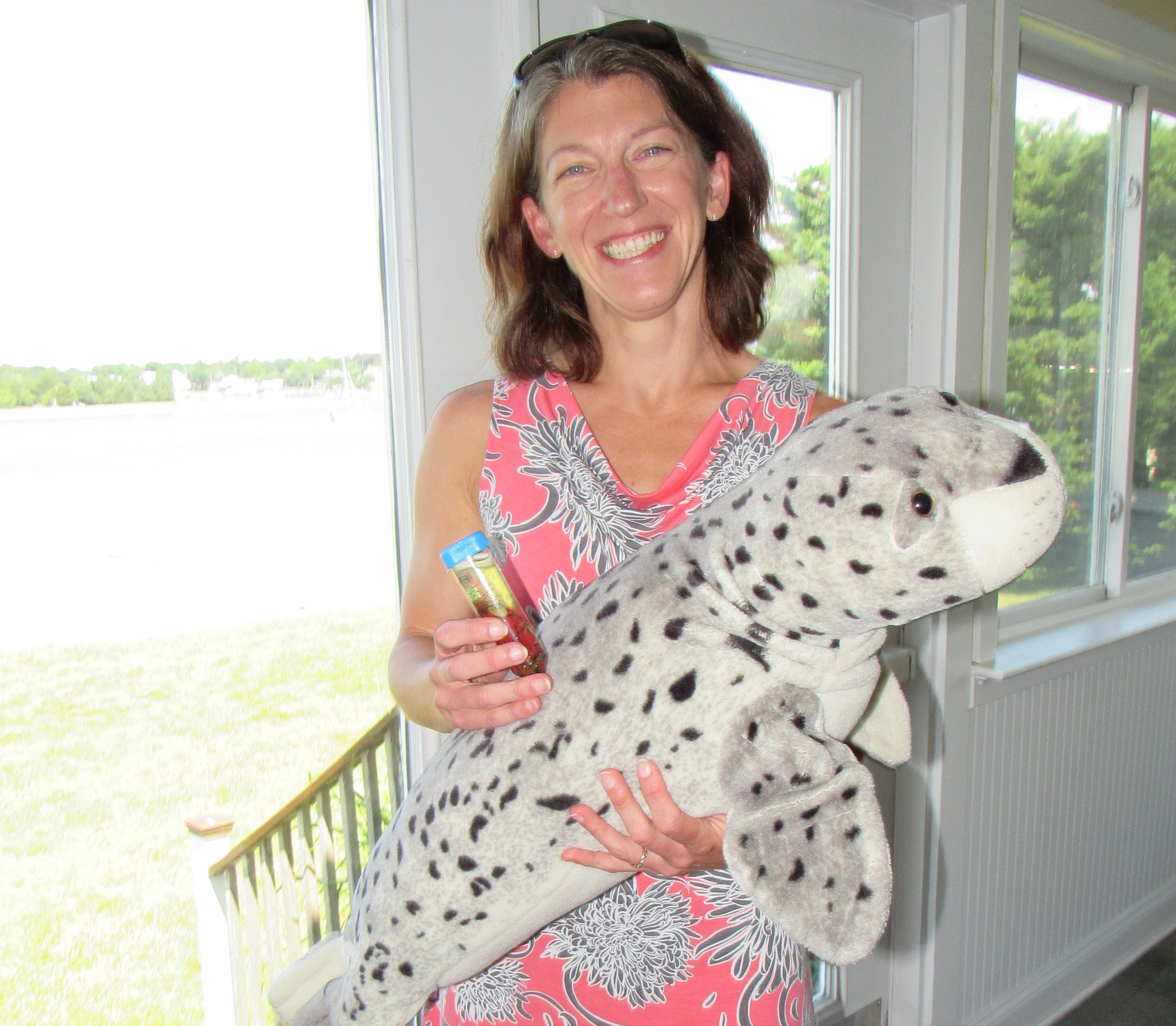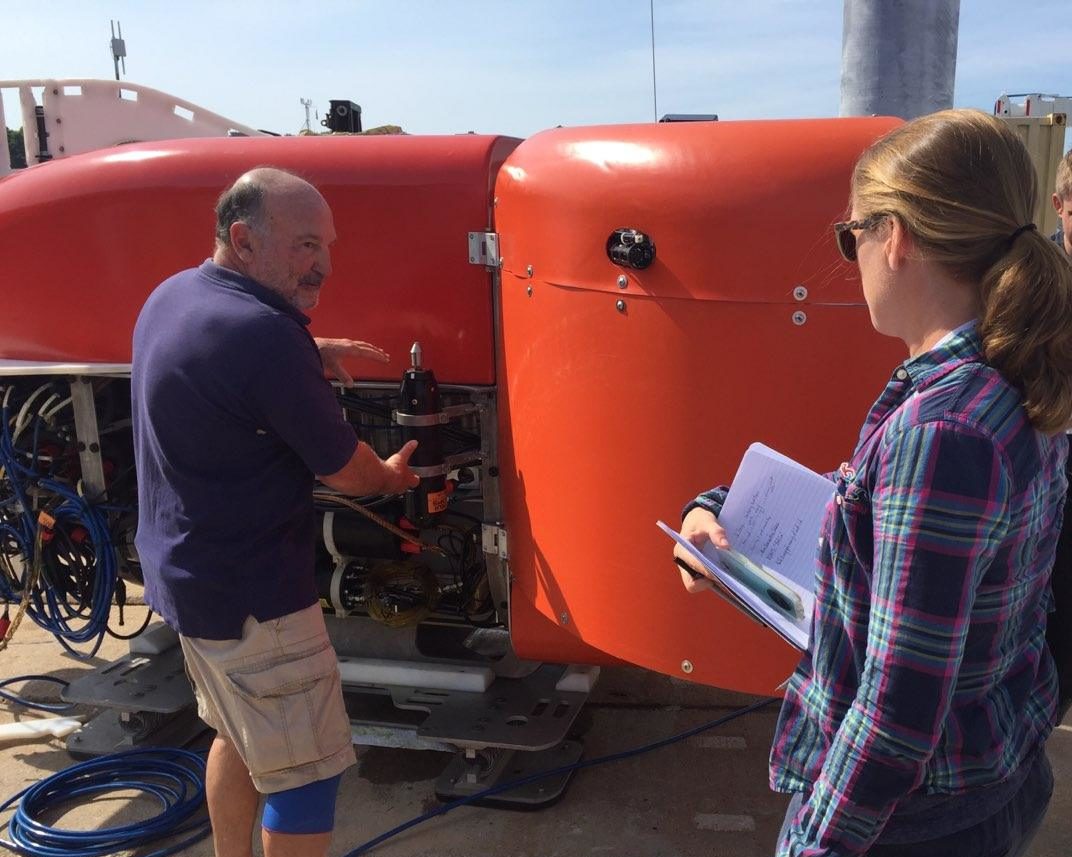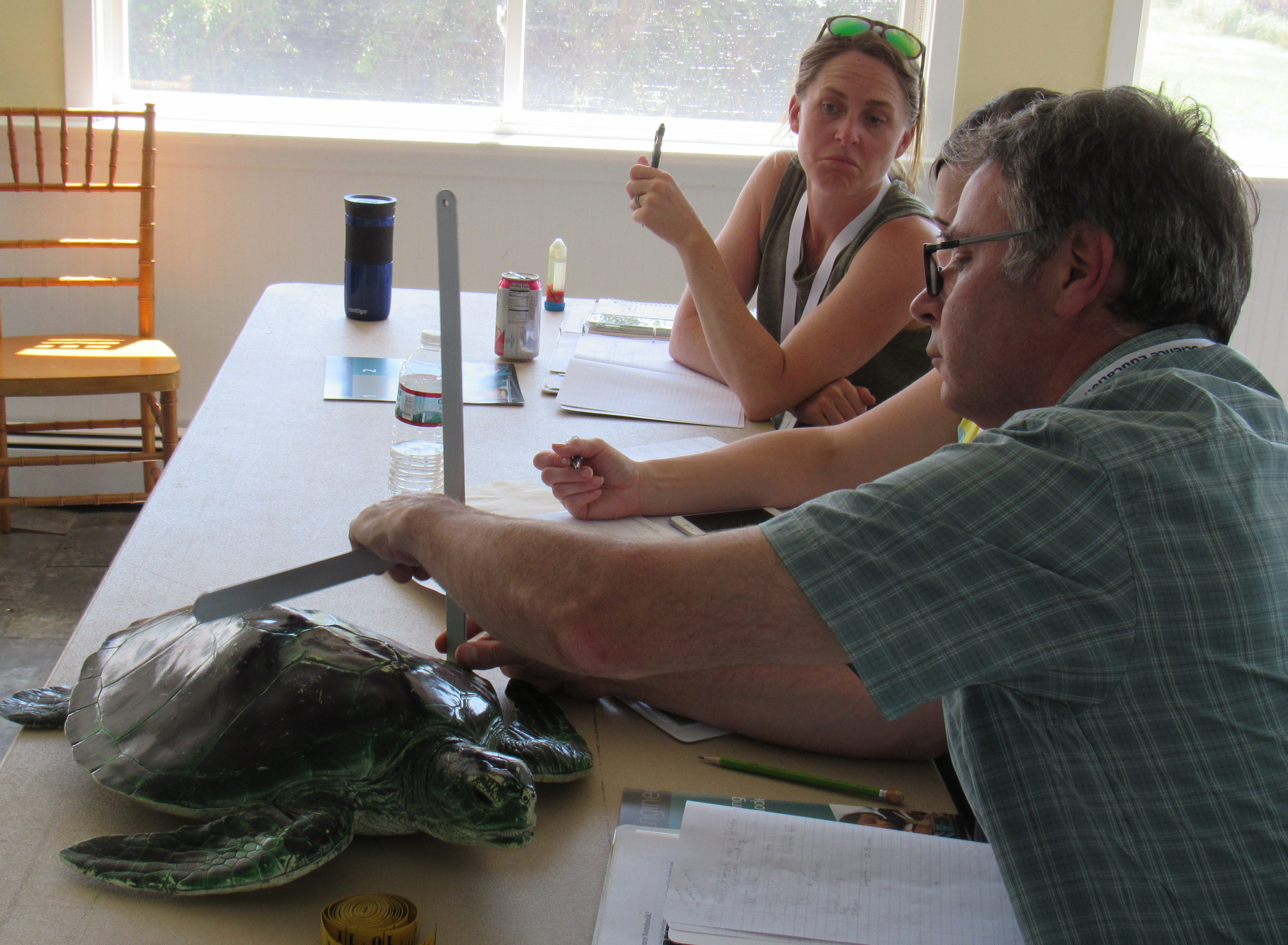Wednesday, September 11, 2019
For Immediate Release
Cape Cod Teachers Investigate Technologies
for Studying Marine Life
Bourne, MA – From its natural resources to its people, Cape Cod has so much to offer science teachers! During a July 15th – 19th Summer Professional Development Institute held by the Wade Institute for Science Education, middle and high school educators accessed community resources to learn about current technologies used in marine ecosystem and animal research. Through guest presentations, field studies and hands-on, minds-on investigations, educators refined their knowledge of inquiry-based education and enhanced their understanding of STEM content in order to boost their classroom curriculum to inspire students with science. The institute was based out of the National Marine Life Center in Buzzards Bay.

Teachers dove into inquiry-based learning by conducting a mock sea turtle rescue and satellite tagging assessment with the National Marine Life Center and by investigating influenza in wild seal populations with guest presenter, Dr. Wendy Puryear from the Cummings School of Veterinary Medicine at Tufts University. Participants followed the local wave of excitement about the return of a top predator and continued their exploration of marine megafauna with a field study at the Atlantic White Shark Conservancy. At the Conservancy, they learned about the use of technology to track local white sharks. During a visit to the Lloyd Center for the Environment, they took a big-picture approach by assessing the effects of climate change on the local environment and discussing how their students can participate in biodiversity monitoring.

While they examined the interconnectedness of wildlife within the Cape Cod ecosystems, educators also examined marine technologies developed for research purposes. To further explore technologies developed for ocean exploration, teachers went behind-the-scenes of Woods Hole Oceanographic Institution’s scientific laboratories and Hydriod’s intelligent marine robot manufacturing facilities. Led by scientists and engineers, participants learned about the development and uses for marine technologies, such as submersibles, autonomous underwater vehicles, satellite tags, and more.

Throughout the week, educators learned from scientists in field and laboratory settings to observe how technology and engineering have advanced the study of marine animal science. How will educators apply their new knowledge to their classrooms? Following the weeklong institute, teachers developed inquiry-based investigations incorporating the course content to use in their classrooms. These lessons might utilize satellite tag data to research marine megafauna or challenge students to engineer a marine robot. Whatever they decide to investigate with their students, these teachers have earned their salt in hands-on, minds-on learning of marine science.
The Cape Cod Region 2019 Summer Professional Development Institute was held by the Wade Institute for Science Education in partnership with the National Marine Life Center and in collaboration with the Atlantic White Shark Conservancy, the Lloyd Center for the Environment, the Massachusetts Maritime Academy, Woods Hole Oceanographic Institution, Hydroid and Tufts University. Learn more at: https://www.wadeinstitutema.org/2019-capecod-region-summer-professional-development-institute/

###
The Wade Institute for Science Education specializes in providing inquiry-based, hands-on, minds-on, science, technology and engineering professional development for K-12 teachers and informal educators. For more information, visit www.wadeinstitutema.org or call 617-328-1515.
